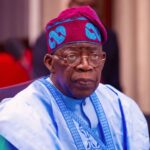While my novel ‘The Herdsboy’ is in the Africanfuturism genre, it will have tropes and themes that speak to the current zeitgeist in our world today, and especially in Northern Nigerian society, as well as some Nigerian contexts. Even though it is essentially fictional, only I could write it in the way it is being written, and it is my story in many a sense of the phrase. There are bits and pieces of my personal experiences which have made it into making the main character, Modibbo, a multi-dimensional one who carries the story. The point I am trying to make is that it is my story, no matter what. Therefore, you can write your story, and there would be none like it. The act of writing one’s own story – personal or fictional – is a profoundly meaningful and empowering endeavour.
Writing can be a journey of self-discovery, reflection, and self-expression that allows you to have control over the narrative of your life. In an era where external influences often shape our perception of self and reality, the act of crafting our own stories is an essential means of preserving our uniqueness, fostering personal growth, and leaving a lasting legacy. Writing one’s own story is an act of preserving individuality in a world that often encourages conformity. Each person’s life experiences, values, beliefs, and aspirations are unique. When we take the time to write our own stories, we capture the essence of our individuality, ensuring that our voices are heard amidst the cacophony of external influences. This is especially so in this our age, that of Social Media. But I digress.
In a society that often pressures individuals to conform, the act of writing one’s own story serves as a declaration of authenticity. It enables individuals to define themselves on their terms, resisting external pressures to conform to predetermined narratives. In doing so, it fosters a sense of self-worth and self-respect, reinforcing the idea that every life is valuable precisely because of its uniqueness. It makes me particularly happy to see a rise, no matter how modest, in Nigerians of a variety of ages, writing and publishing books about personal and professional experiences. I personally believe that everyone is an expert at something and some even at many things all at once. So why can’t we share those experiences with the world?
Writing one’s own story is an act of profound self-reflection. It requires individuals to delve into their past, examine their choices, and contemplate their goals for the future. This process of introspection is a powerful tool for personal growth and self-improvement. By documenting one’s experiences and feelings, individuals gain a deeper understanding of themselves and their motivations. They can identify patterns of behaviour, strengths, weaknesses, and areas for personal development. This self-awareness is the foundation upon which meaningful change is built. It allows individuals to make informed decisions, set goals, and work toward becoming the best versions of themselves.
Nigeria’s future rests on science, technology – Buhari
Insecurity: 12 killed, 139 abducted as robbers, kidnappers lay siege on FCT communities
I particularly welcomed the idea of the Daily Trust Foundation’s workshop because I have always been a staunch believer in the fact that writing one’s own story is an assertion of agency and empowerment. It is a declaration that one’s life is not simply a product of external circumstances but a narrative that can be shaped and directed by one’s own choices and actions. This sense of agency is a powerful antidote to feelings of helplessness or victimhood. Now imagine someone like a journalist, with a treasure trove of information and experience, setting out to pen down a book. When individuals take control of their narratives, they are no longer passive recipients of life’s events. Instead, they become active participants in their own stories, capable of steering their lives in the direction they desire.
It’s a human thing to wonder or even worry about leaving a legacy. I would say it’s wired into us, woven into our very DNA. The great news is that writing one’s own story is a way of leaving a lasting legacy, allowing individuals to pass down their experiences, wisdom, and values to future generations. Whether through memoirs, autobiographies, or personal writings, these stories can inspire, educate, and connect with others. The stories we write have the potential to transcend our lifetimes, serving as a testament to the human experience. They can provide insights, lessons, and perspectives that resonate with others, fostering empathy and understanding. In this way, writing one’s own story contributes to the collective wisdom of humanity, enriching the lives of those who come after us.
During the 10 decades-plus I was Editor of Weekly Trust (which later became Daily Trust Saturday), I have come across many thousands of stories, from as many different sources, While I curated what I felt would appeal to readers, never for once did I ever discount the significance of any particular one of them. They are, after all, accounts of other people’s lives, as valid as important as the next. This underscores the facts that as we navigate the complexities of our lives, let us remember the significance of crafting our own narratives, our own stories. By doing so, we not only honour our unique experiences but also contribute to the rich tapestry of human stories that shape our understanding of the world.
(Concluded)

 Join Daily Trust WhatsApp Community For Quick Access To News and Happenings Around You.
Join Daily Trust WhatsApp Community For Quick Access To News and Happenings Around You.


